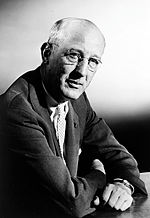No subscription or hidden extras
Read through all quotes from Bruce Catton
In The American Heritage Picture History of the Civil War (1960) Catton wrote the accompanying narrative to a book that included over 800 paintings and period photographs. Biographical sketch and list of articles by Catton in American Heritage
Honors and awards
1954 Pulitzer Prize and U. In his memoir Waiting for the Morning Train (1972) Catton explained how their stories made a lasting impression upon him:
In 1916 Catton began attending Oberlin College but he left without completing a degree because of World War I.
Although his books were well researched and supported by footnotes they were not generally presented in a rigorous academic style. Known as a narrative historian Catton specialized in popular history featuring colorful characters and historical vignettes in addition to the basic facts dates and analyses. Charles Bruce Catton (October 9 1899 – August 28 1978) was an American historian and journalist best known for his books on the American Civil War.

